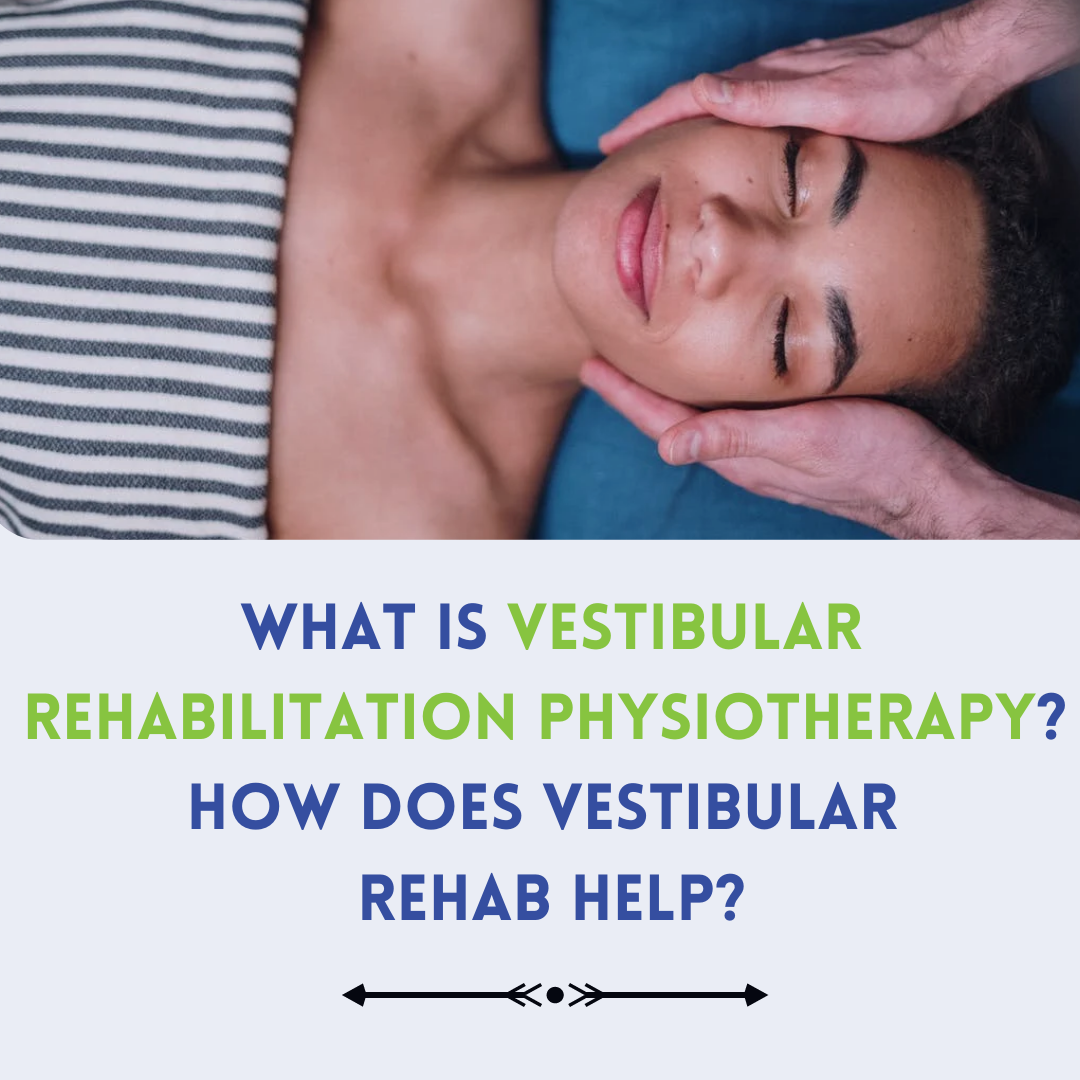What is Vestibular Rehabilitation Physiotherapy?
Vestibular Rehabilitation therapy is used to treat vertigo, dizziness, and balance disorders. The therapy also helps people who have had a head injury, some neurological diseases, or other conditions.
The physiological basis of vestibular rehabilitation physiotherapy is that it stimulates the vestibular system in order to restore normal balance functions.
The therapy involves various exercises that are designed to improve balance and reduce vertigo sensations. This therapy can be done by anyone who has been diagnosed with vestibular dysfunction or even people who have had a sudden onset of vestibular problems due to an injury or illness.
The primary goal of the treatment is to retrain the brain so that it can work better in interpreting signals from the inner ear. This process will take some time but it will be worth it in the end as patients are less likely to experience episodes of vertigo again in the future.
What is the Vestibular system?
The vestibular system is the sensory system that helps us to have a sense of balance which is known as the balance system.
The vestibular system is the part of the body that controls balance and eye movements. When this system becomes damaged, it can lead to vertigo and other balance-related problems.
The Vestibular System is a part of the inner ear that monitors head movement and position. It is found in the inner ear, which is located within the temporal bone in your skull.
The Vestibular System consists of two parts: the semicircular canals and otolith organs. The semicircular canals detect rotational head movements while the otolith organs detect linear head movements. When we move our heads, these sensors send signals to our brain to tell it how we are moving and where we are in space.
How Does Vestibular Rehab Help?
If your symptoms are caused by head or body movements like rotating your head or by shifting postures like bending down, looking up, lying flat, turning over in bed, there is a considerable probability that vestibular rehab will help greatly improve or even entirely resolve them
Avoiding activities that cause vertigo might actually slow down your recovery. A vestibular physiotherapist can help you evaluate which exercises will be most beneficial to you.
In the first phase, the vestibular physiotherapist will try to identify any problems with the patient’s visual system or posture. Next, they will check for any problems with their hearing. Finally, they will work on restoring patients’ balance and orientation skills.
Vestibular or Vertigo Therapy is designed to help the brain better understand what the eyes are seeing and what the ears are hearing. This can help with balance problems caused by damage to the vestibular system or other conditions.
What types of problems benefit from Vestibular Rehabilitation Physiotherapy?
Here are some problems that patients face while having vestibular balance disorders:
- Benign Paroxysmal Positional Vertigo (BPPV)
- Vestibular Neuritis/Labyrinthitis
- Unilateral Vestibular Hypofunction (UVH)
- Vestibular Migraine
- Persistent Postural Perceptual Dizziness (PPPD)
- Cervicogenic Dizziness
- Post Concussion Syndrome (PCS)
- Neurological conditions (i.e. stroke, traumatic brain injury)
- Vestibular deconditioning from aging or inactivity
- and many other vestibular conditions
Vestibular Balance Disorder Symptoms
Below are some common symptoms that can be seen in vestibular disorder patients:
- Dizziness or blurry vision with head movements
- Neck tightness, stiffness, and/or pain
- Imbalance or the need to hold onto objects when walking
- Headaches
- Frequent falls
- Generalized “dizziness, wooziness, and foggy head” feelings
- Vertigo/spinning
- Nausea, vomiting, fatigue
- Imbalance and difficulty walking
What type of recovery or outcome can I expect from vestibular therapy?
Below are the outcomes that you can expect from vestibular therapy:
- Reduce dizziness symptoms
- Reduce nausea or vomiting
- Improve focus or concentration and memory
- Improved balance in standing or sitting
- Reduce the risk of falling
- Improved ability to stabilize gaze or vision and ability to track or focus on objects near and far
- Improved neck mobility, stiffness, and/or pain
- Less fatigue and improved sleep
- Reduce anxiety and depression and better ability to cope with stress
- Increased confidence to return to desired activities and hobbies
What is the success rate of vestibular rehabilitation therapy?
Vestibular rehabilitation therapy is frequently the sole treatment required. Sometimes it is part of the pre or post-surgery therapy regimen. In most situations, if patients continue to practice the exercises they have learned, their balance and dizziness problems will improve immensely or totally disappear.
Experts studies show that 85% of patients recovered from inner-ear problems with vestibular rehabilitation therapy and 30% of patients recovered completely.
How will I know whether the treatment is effective?
Your physiotherapist will follow your progress using particular outcome measures and physical tests, but the most important measure of progress is whether you feel better and are able to accomplish more of what is important to you.
This type of therapy is effective as it helps to restore balance function, improve quality of life and reduce the frequency and severity of symptoms.


